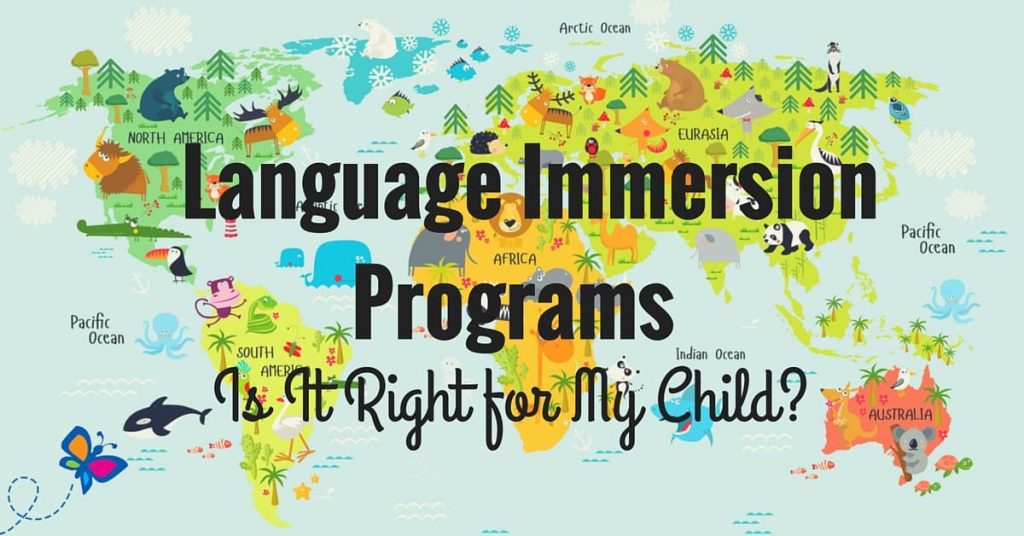Language immersion programs have gained widespread popularity as an effective method for learning new languages while fostering cultural understanding and cognitive development. Whether for children or adults, these programs provide an immersive environment where learners acquire language skills naturally and efficiently.
In this article, we will explore the benefits of multilingual education, how language immersion programs work, and why they are an excellent investment for personal and professional growth.
What Are Language Immersion Programs?

A language immersion program is a structured approach to learning where students are fully immersed in the target language. Instead of learning through traditional grammar-based instruction, all communication, instruction, and daily interactions occur in the new language.
Language immersion programs exist at various levels:
- Full Immersion – The target language is used for 100% of instruction and communication.
- Partial Immersion – A portion of subjects is taught in the target language, while others remain in the learner’s native language.
- Dual-Language Immersion – Learners develop proficiency in two languages, typically through a balanced curriculum.
- Study Abroad Programs – Travel-based immersion experiences where learners engage in real-life language use.
Benefits of Language Immersion Programs
1. Accelerated Language Acquisition
One of the primary advantages of immersion programs is their ability to speed up language learning. Since students are constantly exposed to the new language, they develop fluency faster than through traditional methods. Research shows that learners in immersion programs achieve higher levels of language proficiency, often reaching near-native competence.
2. Cognitive Benefits and Brain Development
Learning multiple languages enhances brain function and improves cognitive skills such as:
- Problem-solving – Multilingual individuals are better at switching between tasks and solving complex problems.
- Memory and retention – Language learning strengthens memory and improves recall abilities.
- Creativity and flexibility – Exposure to different linguistic structures fosters creative thinking.
Studies have also shown that bilingual and multilingual individuals have a lower risk of cognitive decline and conditions like Alzheimer’s and dementia later in life.
3. Academic Success and Higher Achievement
Students in language immersion programs tend to perform better on standardized tests across various subjects, including math, reading, and science. This is because multilingual education strengthens critical thinking and improves focus, discipline, and adaptability.
Moreover, immersion students develop better listening skills and greater attention to detail, giving them an academic advantage over monolingual peers.
4. Enhanced Cultural Awareness and Global Perspective
Language is deeply connected to culture, identity, and history. Immersion programs expose learners to different cultures, fostering open-mindedness and appreciation for diversity.
Through real-life experiences, students:
- Develop greater empathy and cross-cultural understanding.
- Learn to navigate multicultural environments with ease.
- Gain a global perspective, preparing them for international opportunities.
5. Improved Career Opportunities and Professional Growth
In today’s globalized world, bilingualism and multilingualism are highly valued skills in the job market. Employers seek professionals who can:
- Communicate with diverse clients and colleagues.
- Work in international business, diplomacy, and education.
- Adapt to multilingual environments in industries like tech, healthcare, and tourism.
Being fluent in multiple languages increases job opportunities, salary potential, and career mobility.
6. Greater Confidence and Communication Skills
Immersion learners develop strong communication skills by engaging in real-world conversations. As they overcome language barriers, they gain:
- Confidence in speaking and expressing ideas.
- Better pronunciation and natural fluency.
- The ability to think quickly in another language.
This confidence extends beyond language learning, helping individuals excel in public speaking, presentations, and social interactions.
Who Can Benefit from Language Immersion Programs?
Language immersion programs are suitable for all age groups and backgrounds:
- Children and Students – Early exposure leads to greater fluency and cognitive benefits.
- Adults and Professionals – Career advancement, travel, and personal growth.
- Expats and Travelers – Enhanced communication in a new country.
Choosing the Right Language Immersion Program
When selecting a language immersion program, consider:
- Your goals – Are you learning for travel, career, or personal growth?
- Program structure – Full vs. partial immersion, online vs. in-person.
- Duration and intensity – Short-term courses or long-term immersion.
- Cultural integration – Opportunities to engage with native speakers.
Conclusion
Language immersion programs offer an unparalleled approach to learning, providing linguistic, cognitive, and cultural benefits that last a lifetime. Whether for academic success, career advancement, or personal enrichment, multilingual education opens doors to new opportunities and global experiences.
If you’re considering learning a new language, immersion is the most effective way to achieve fluency. Take the leap and experience the transformative power of multilingual education! 🌍😊

